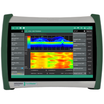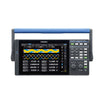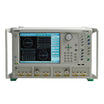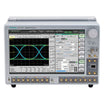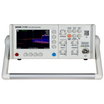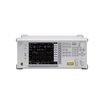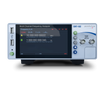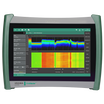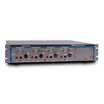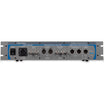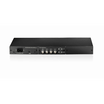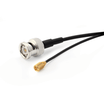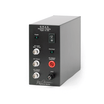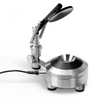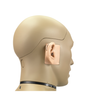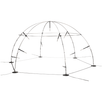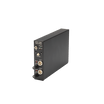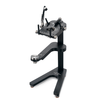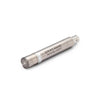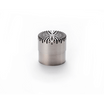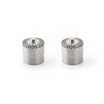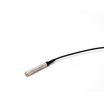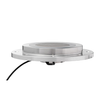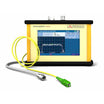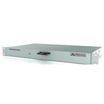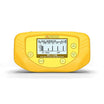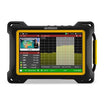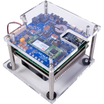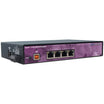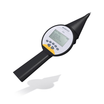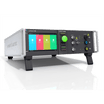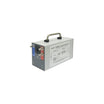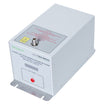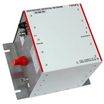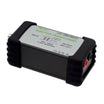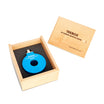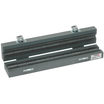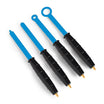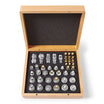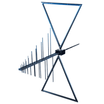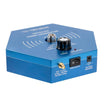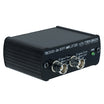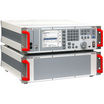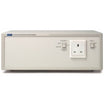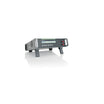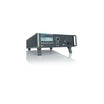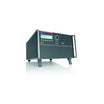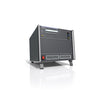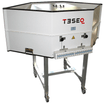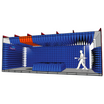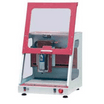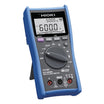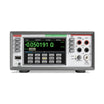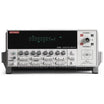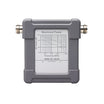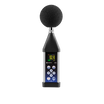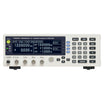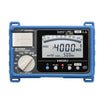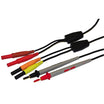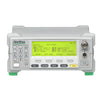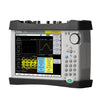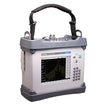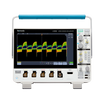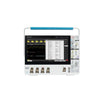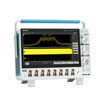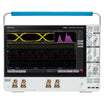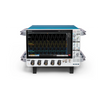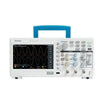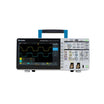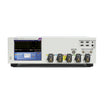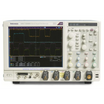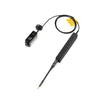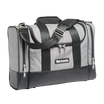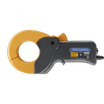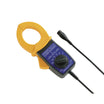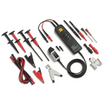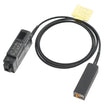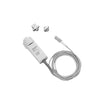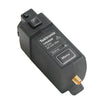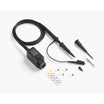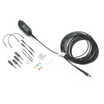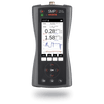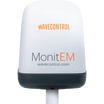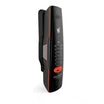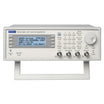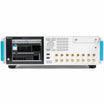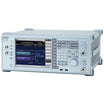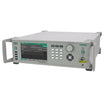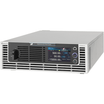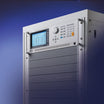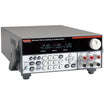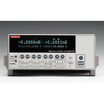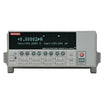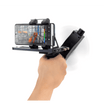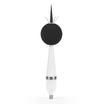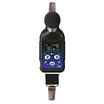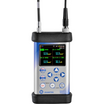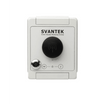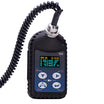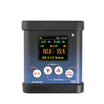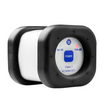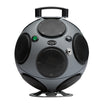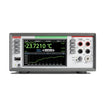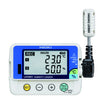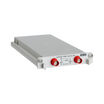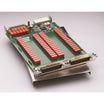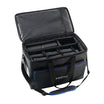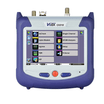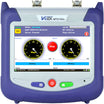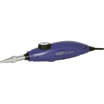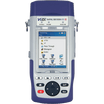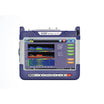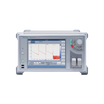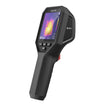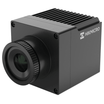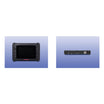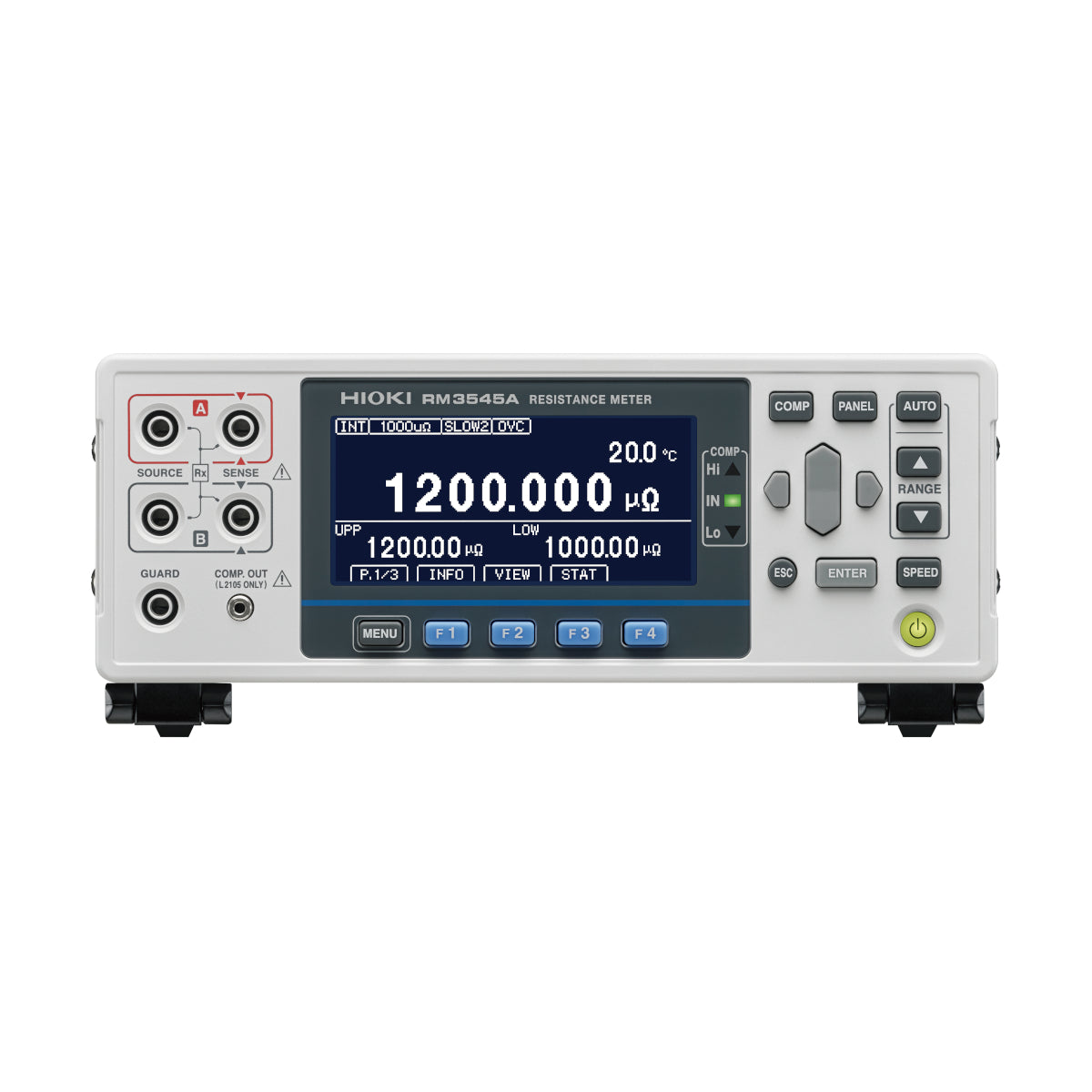
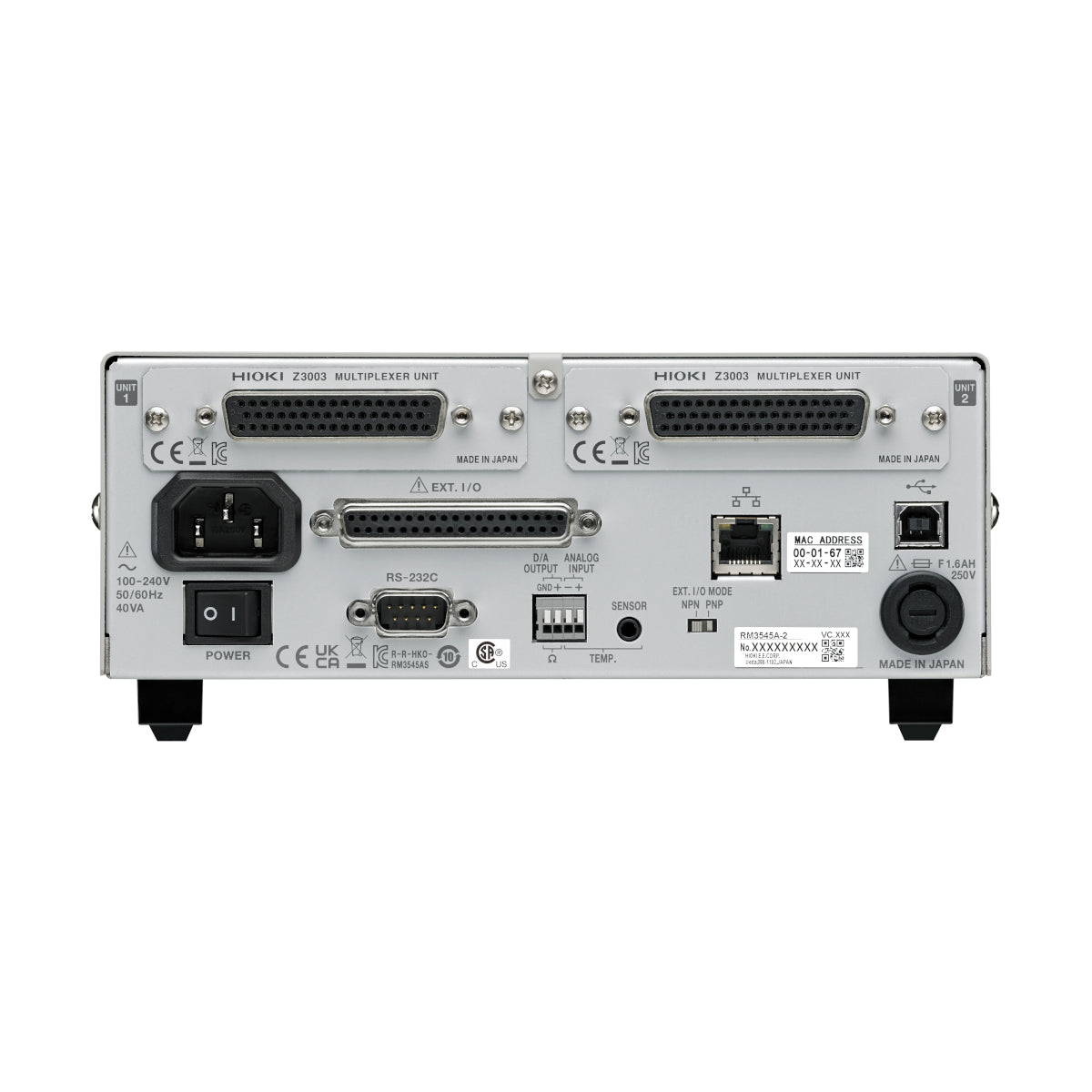
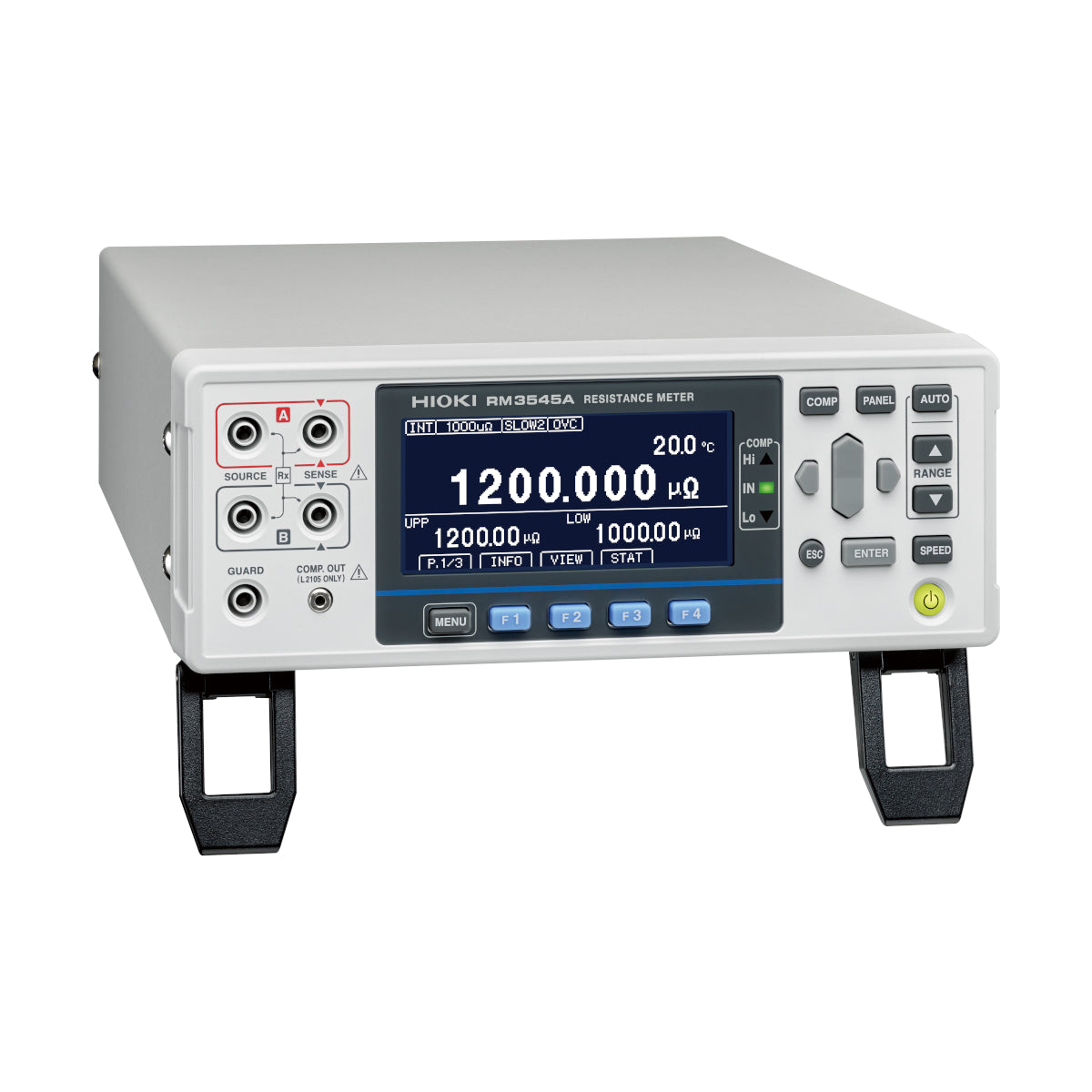
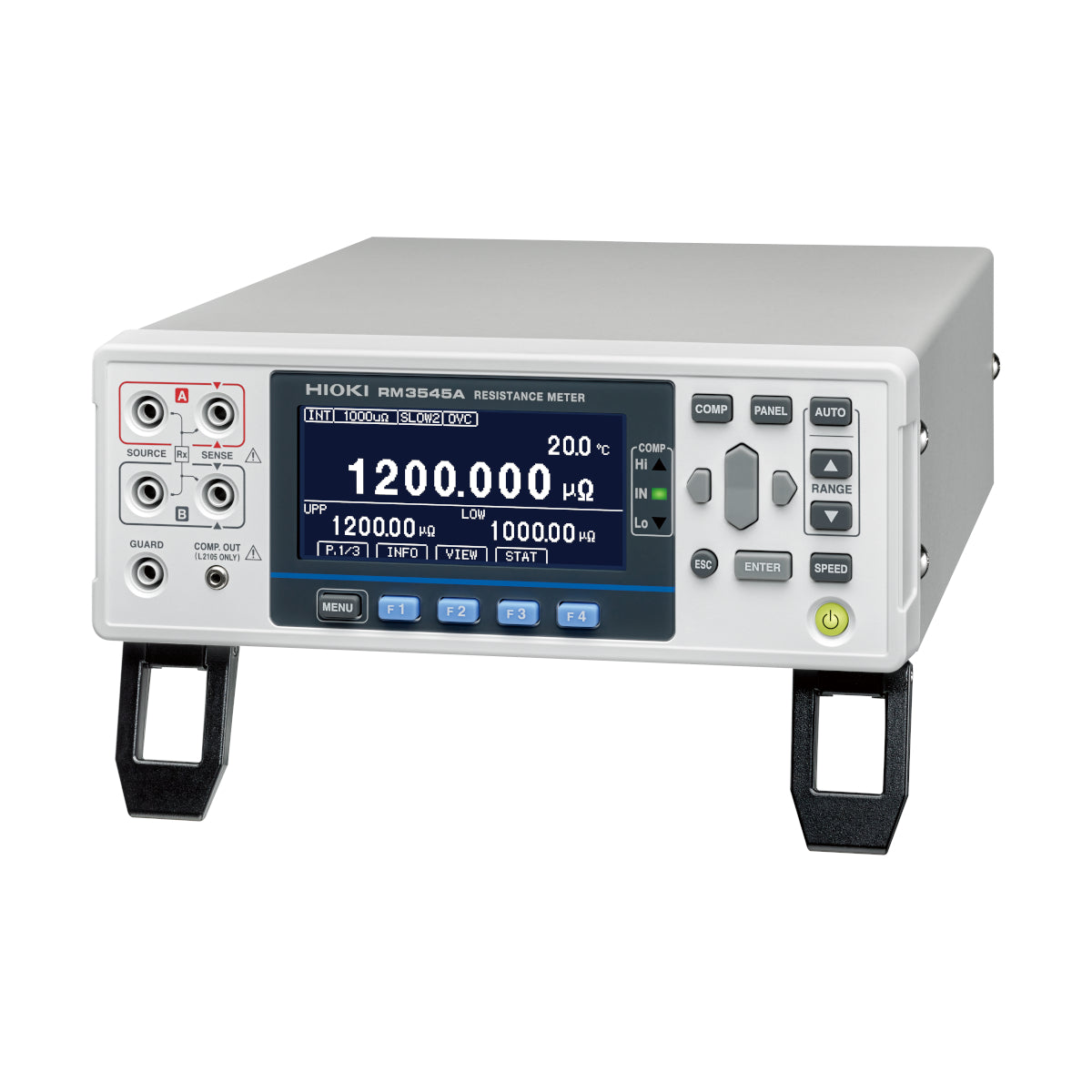
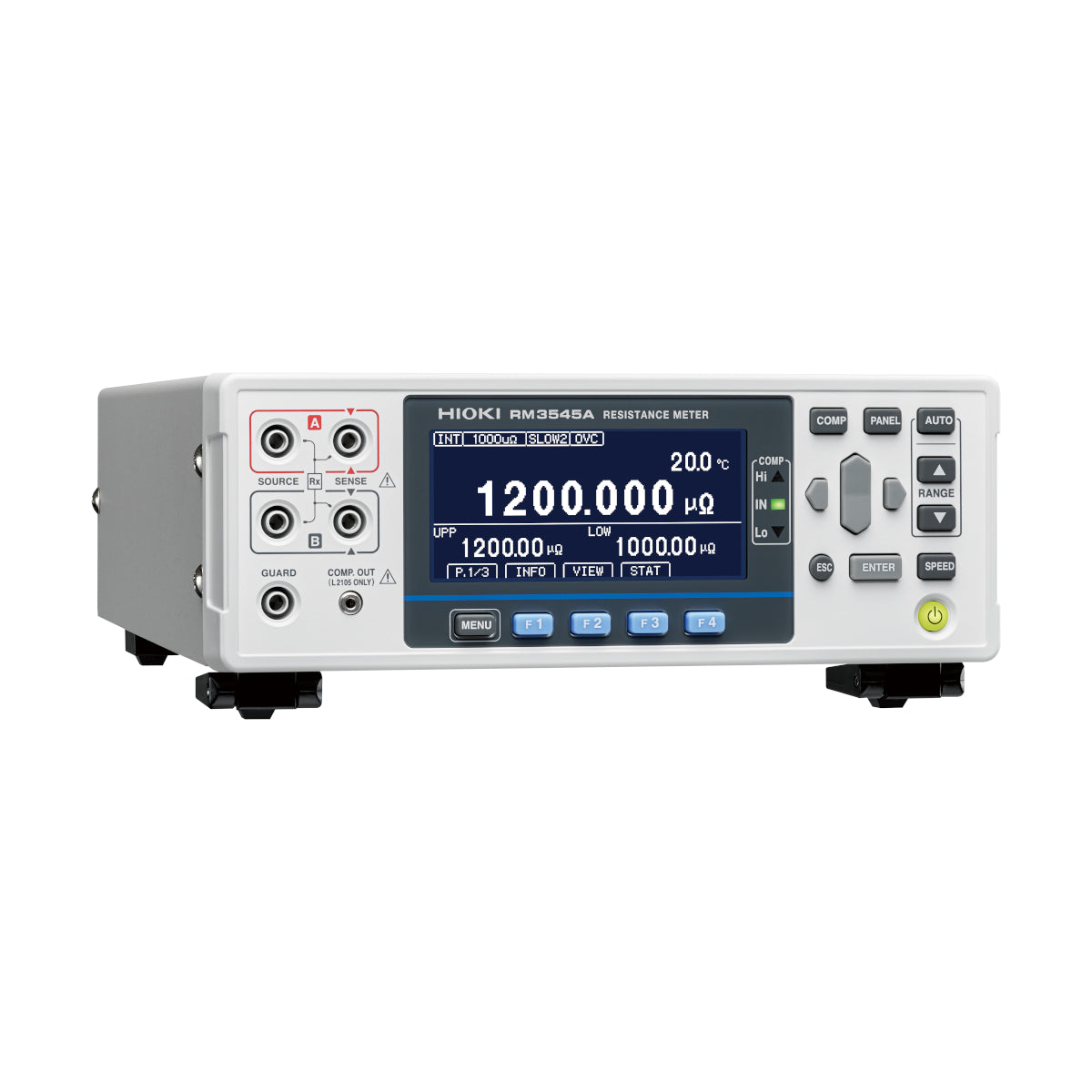
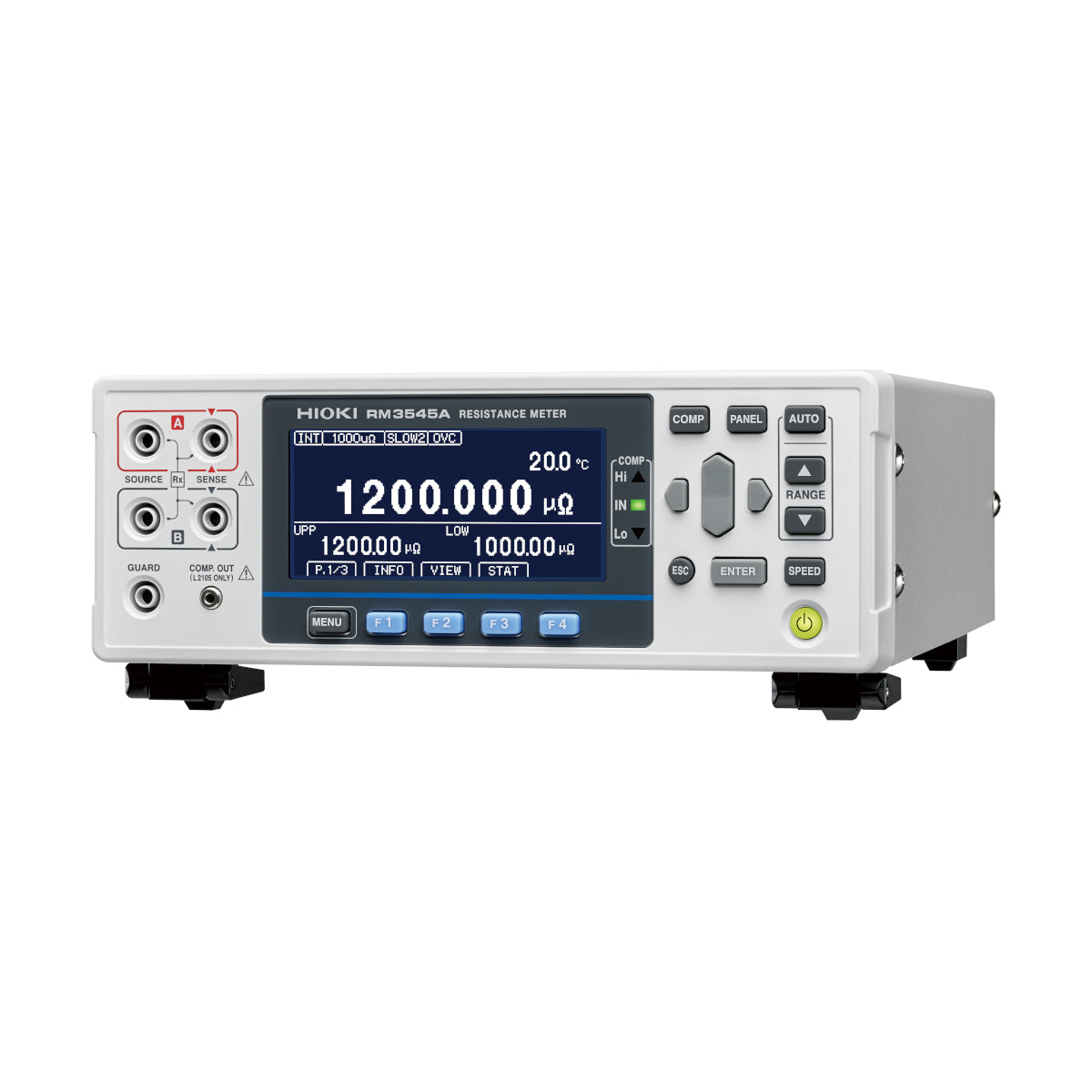
Hioki RM3545A-2 Resistance Meter
Use our chat for personal support or contact us via +45 31 33 18 19 or salg@GOmeasure.dk
- New Heights in 100% Inspection.
- Market leading precision tests for testing every weld or connection on your production line.
- Support for the multiplexer unit
Discover the possibilities
More information
Description
As electric mobility gains popularity, manufacturers are developing components for higher currents and voltages. Since even minuscule amounts of resistance can have a significant impact on energy efficiency and safety, more accurate quality control focusing on resistance is required. The Resistance Meter RM3545A facilitates accurate resistance measurements and is suitable for diverse applications in development and production lines.
Manage connection quality in welded materials and other parts quantitatively
Quantitatively verify weld quality and weld methods in EV power cables and other parts
Use readings as indicators for thermal design and energy management
Use accurate resistance measurements to simulate heat loss and energy efficiency
Boost productivity by embedding the instrument in automatic test equipment
Embed the instrument in a system without needing to worry about wiring resistance or contact resistance. The instrument is ideal for use in high-speed 100% inspections
Key Features
- 0.045% basic accuracy, 1 nΩ max. resolution, 1A max. testing current
- Measure from 1 nΩ (testing current 1 A) to 1200 MΩ
- Equipped with advanced features, ensuring precise resistance measurement (OVC, temperature measurement, and correction function)
- The RM3545A-2 can be equipped with up to two optional Z3003 Multiplexer Units, allowing it to measure up to 20 channels (using the 4-terminal method)
- High path resistance tolerance allows seamless integration into an automatic test system, eliminating concerns about wiring or contact resistance
- Advanced contact-check, comparator function, control, and communications features
Measure low resistance values at high precision and high, 1 nΩ resolution
Electric resistance is measured by passing a current through a measurement target such as a weld. Pass and fail judgments are generated based on variation in resistance values. A typical low-resistance weld can have resistance ranging from 10 μΩ to 100 μΩ. The Resistance Meter RM3545A provides a 1000 μΩ range and 1 nΩ resolution, allowing it to measure low resistance values with a high degree of precision. If a weld is insufficient, its resistance value will exceed that of a non-defective weld. Pass and fail results are generated for non-defective and defective welds based on minuscule differences in their resistance values. Weld quality can be managed quantitatively for all welds passing through a production line, ensuring traceability.
Ensuring precision in resistance measurement
Offset voltage correction function (OVC)
When measuring low resistance, due to the voltage generated when different metals come into contact with one another (known as electromagnetic force, or EMF), the measurement values can be unstable. The Hioki RM3545A is built in with an Offset Voltage Compensation (OVC) function to correct for the effects of EMF, making the instrument ideal for measuring low resistance of the welding points of busbars.
Temperature coefficient of resistance
The resistance values vary with temperature. To ensure consistent testing with a resistance meter, it is necessary to eliminate the effects of temperature. The RM3545A has got you covered.
Temperature correction (TC) function
Temperature correction functions can convert readings to resistance values at a user-specified reference temperature and display the results, even for materials such as copper wire whose resistance varies with temperature. The RM3545A's temperature correction function converts the measured resistance value Rt at the current temperature t to the resistance value Rt0 at the reference temperature t0, as shown in the figure. The Temperature Sensor Z2001 (included accessory) is used to perform temperature correction.
Temperature measurement function
When using the Temperature Sensor Z2001, the instrument can measure temperature with a high degree of precision (±0.5°C). It can also accept analog input from a radiation thermometer (0 V to 2 V).
Temperature conversion (ΔT) function
This function calculates and displays temperature rise from the measured resistance value and ambient temperature.
Manufacturing-line-ready breakthrough features
Multi-channel, one unit: made possible by installed multiplexer of RM3545A-2
The RM3545A-2 can be equipped with up to two optional Z3003 Multiplexer Units, allowing it to measure up to 20 channels (using the 4-terminal method). Furthermore, the instrument can accommodate up to 132 channels (using the 4-terminal method) when combined with the Switch Mainframe SW1002. Responding to market demand for low-cost and space-saving.
Embed in an automatic test system without needing to worry about wiring resistance or contact resistance
Here are the key features of how the RM3545A revolutionizes automated testing in resistance measurement.
High path resistance tolerance
Precise measurement of low resistance necessitates a high-precision range with a large measuring current, but challenges arise due to cable wiring and probe contact resistance, known as path resistances. The RM3545A, with its higher path resistance tolerance, overcomes these challenges, ensuring seamless integration into other systems without concerns about wiring or contact resistance.
LAN interface
The instrument also ships standard with a LAN interface so that it can easily exchange data with other devices like computers and PLCs.
Fast measurement speed
Fast measurement speed (21 ms) that will speed up the tests and thus the speed of production.
Enhancing operations with advanced equipment controls and communications
Effective equipment controls and communications are crucial to operational performance. This versatile array of capabilities improves the user experience and simplifies difficult tasks. Explore the aspects that make these functions essential.
Command monitor function
This function displays responses from communications commands and queries. It can significantly reduce the number of debugging man-hours when building systems.
USB keyboard mode (HID)
This function allows the instrument to automatically enter measurement results in Excel® or a text editor, freeing the operator from troublesome data entry work.
Sequence maker
Sequence Maker is an add-in that lets you implement integrated control of instruments with Excel®. It lets you easily check the control procedures when controlling automated or labor-saving equipment.
Learn more about Sequence Maker
LabView
Embracing compatibility with LabView(*1), a widely used system design and automation software, our system becomes a versatile player in the realm of instrumentation.
*1:LabVIEW Driver is the trademark or registered trademark of National Instruments.
Specifications
Documents
Brochure:
Options
Video
As electric mobility gains popularity, manufacturers are developing components for higher currents and voltages. Since even minuscule amounts of resistance can have a significant impact on energy efficiency and safety, more accurate quality control focusing on resistance is required. The Resistance Meter RM3545A facilitates accurate resistance measurements and is suitable for diverse applications in development and production lines.
Manage connection quality in welded materials and other parts quantitatively
Quantitatively verify weld quality and weld methods in EV power cables and other parts
Use readings as indicators for thermal design and energy management
Use accurate resistance measurements to simulate heat loss and energy efficiency
Boost productivity by embedding the instrument in automatic test equipment
Embed the instrument in a system without needing to worry about wiring resistance or contact resistance. The instrument is ideal for use in high-speed 100% inspections
Key Features
- 0.045% basic accuracy, 1 nΩ max. resolution, 1A max. testing current
- Measure from 1 nΩ (testing current 1 A) to 1200 MΩ
- Equipped with advanced features, ensuring precise resistance measurement (OVC, temperature measurement, and correction function)
- The RM3545A-2 can be equipped with up to two optional Z3003 Multiplexer Units, allowing it to measure up to 20 channels (using the 4-terminal method)
- High path resistance tolerance allows seamless integration into an automatic test system, eliminating concerns about wiring or contact resistance
- Advanced contact-check, comparator function, control, and communications features
Measure low resistance values at high precision and high, 1 nΩ resolution
Electric resistance is measured by passing a current through a measurement target such as a weld. Pass and fail judgments are generated based on variation in resistance values. A typical low-resistance weld can have resistance ranging from 10 μΩ to 100 μΩ. The Resistance Meter RM3545A provides a 1000 μΩ range and 1 nΩ resolution, allowing it to measure low resistance values with a high degree of precision. If a weld is insufficient, its resistance value will exceed that of a non-defective weld. Pass and fail results are generated for non-defective and defective welds based on minuscule differences in their resistance values. Weld quality can be managed quantitatively for all welds passing through a production line, ensuring traceability.
Ensuring precision in resistance measurement
Offset voltage correction function (OVC)
When measuring low resistance, due to the voltage generated when different metals come into contact with one another (known as electromagnetic force, or EMF), the measurement values can be unstable. The Hioki RM3545A is built in with an Offset Voltage Compensation (OVC) function to correct for the effects of EMF, making the instrument ideal for measuring low resistance of the welding points of busbars.
Temperature coefficient of resistance
The resistance values vary with temperature. To ensure consistent testing with a resistance meter, it is necessary to eliminate the effects of temperature. The RM3545A has got you covered.
Temperature correction (TC) function
Temperature correction functions can convert readings to resistance values at a user-specified reference temperature and display the results, even for materials such as copper wire whose resistance varies with temperature. The RM3545A's temperature correction function converts the measured resistance value Rt at the current temperature t to the resistance value Rt0 at the reference temperature t0, as shown in the figure. The Temperature Sensor Z2001 (included accessory) is used to perform temperature correction.
Temperature measurement function
When using the Temperature Sensor Z2001, the instrument can measure temperature with a high degree of precision (±0.5°C). It can also accept analog input from a radiation thermometer (0 V to 2 V).
Temperature conversion (ΔT) function
This function calculates and displays temperature rise from the measured resistance value and ambient temperature.
Manufacturing-line-ready breakthrough features
Multi-channel, one unit: made possible by installed multiplexer of RM3545A-2
The RM3545A-2 can be equipped with up to two optional Z3003 Multiplexer Units, allowing it to measure up to 20 channels (using the 4-terminal method). Furthermore, the instrument can accommodate up to 132 channels (using the 4-terminal method) when combined with the Switch Mainframe SW1002. Responding to market demand for low-cost and space-saving.
Embed in an automatic test system without needing to worry about wiring resistance or contact resistance
Here are the key features of how the RM3545A revolutionizes automated testing in resistance measurement.
High path resistance tolerance
Precise measurement of low resistance necessitates a high-precision range with a large measuring current, but challenges arise due to cable wiring and probe contact resistance, known as path resistances. The RM3545A, with its higher path resistance tolerance, overcomes these challenges, ensuring seamless integration into other systems without concerns about wiring or contact resistance.
LAN interface
The instrument also ships standard with a LAN interface so that it can easily exchange data with other devices like computers and PLCs.
Fast measurement speed
Fast measurement speed (21 ms) that will speed up the tests and thus the speed of production.
Enhancing operations with advanced equipment controls and communications
Effective equipment controls and communications are crucial to operational performance. This versatile array of capabilities improves the user experience and simplifies difficult tasks. Explore the aspects that make these functions essential.
Command monitor function
This function displays responses from communications commands and queries. It can significantly reduce the number of debugging man-hours when building systems.
USB keyboard mode (HID)
This function allows the instrument to automatically enter measurement results in Excel® or a text editor, freeing the operator from troublesome data entry work.
Sequence maker
Sequence Maker is an add-in that lets you implement integrated control of instruments with Excel®. It lets you easily check the control procedures when controlling automated or labor-saving equipment.
Learn more about Sequence Maker
LabView
Embracing compatibility with LabView(*1), a widely used system design and automation software, our system becomes a versatile player in the realm of instrumentation.
*1:LabVIEW Driver is the trademark or registered trademark of National Instruments.

